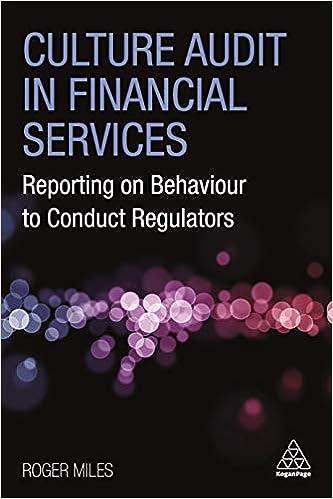Question
Please help me critique this accounting summary post please: Explain the factors that may be involved in determining whether a defect is spoilage, rework, or
Explain the factors that may be involved in determining whether a defect is spoilage, rework, or scrap.
Determining whether a defect is spoilage, rework, or scrap begins with finding out the stage in production the unit is in. If the unit is the result of unacceptable units of production, the item is spoilage (Datar & Rajan, 2018). When unacceptable units of production, or spoilage, are subsequently repaired, the item becomes rework (Datar & Rajan, 2018). Finally, if the item is simply a residual material resulting from manufacturing a product, then it is scrap (Datar & Rajan, 2018).
Discuss the difference between normal and abnormal spoilage.
Spoilage results from waste or destruction of inventory that a firm experiences during business operations and production processes (Hayes, 2021). Even with efficient operations, there is typically still some amount of spoilage (Datar & Rajan, 2018). When spoilage is at the acceptable and expected levels, it is considered normal spoilage. Spoilage is considered abnormal when it is outside of those expected levels (Hayes, 2021) Some reasons for abnormal spoilage include broken machinery and inefficient operations (Hayes, 2021).
How are normal and abnormal spoilage accounted for differently in a process-based cost system?
For both the weighted-average and the FIFO process costing systems, normal spoilage is included in the manufacturing cost of the good units (Datar & Rajan, 2018). Weighted-average method would aggregate cost for existing and current-period goods and include the normal spoilage in those cost amounts, whereas FIFO would keep current period goods separate from existing when adding the normal spoilage costs (Datar & Rajan, 2018). Under both of those methods, abnormal spoilage is expensed in the accounting period incurred (Datar & Rajan, 2018).
Explain the ethical issues inherent in the determination of whether spoilage is normal or abnormal.
There could be ethical issues when determining if something is abnormal or normal spoilage. Employees could have an incentive to deem spoilage as abnormal and expense it in the period in order to keep unit costs low. One motivation for this could be increased competition. On the other side, there could be an incentive to deem abnormal spoilage as normal to mask inefficiencies. Its important to have those thresholds and metrics in place to avoid the ethical dilemma.
Step by Step Solution
There are 3 Steps involved in it
Step: 1

Get Instant Access to Expert-Tailored Solutions
See step-by-step solutions with expert insights and AI powered tools for academic success
Step: 2

Step: 3

Ace Your Homework with AI
Get the answers you need in no time with our AI-driven, step-by-step assistance
Get Started


